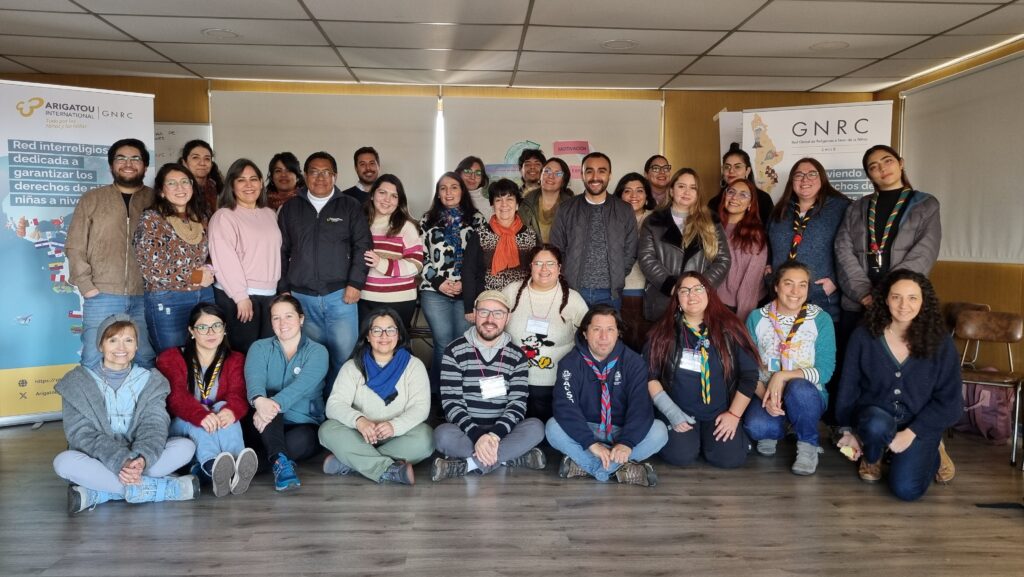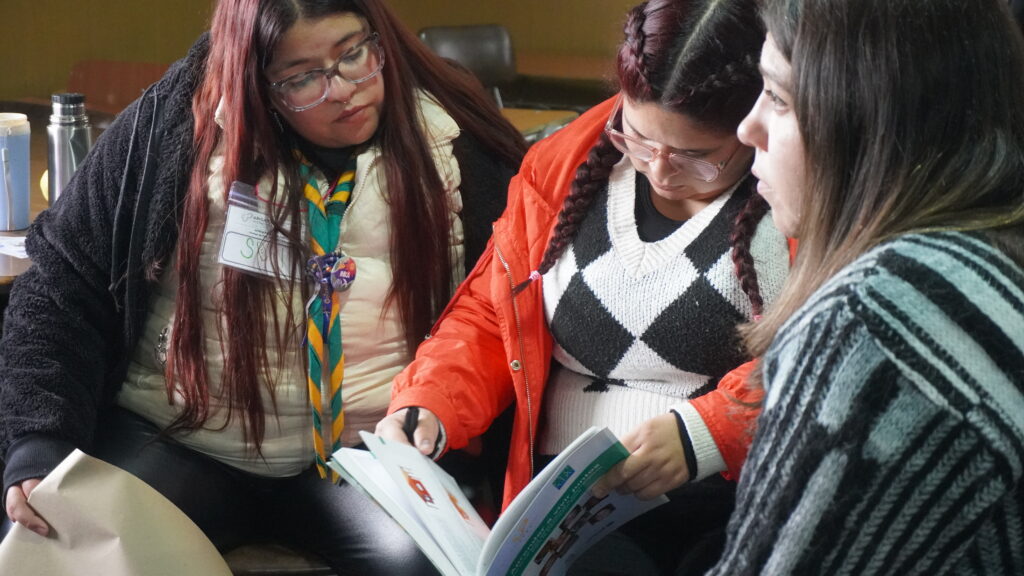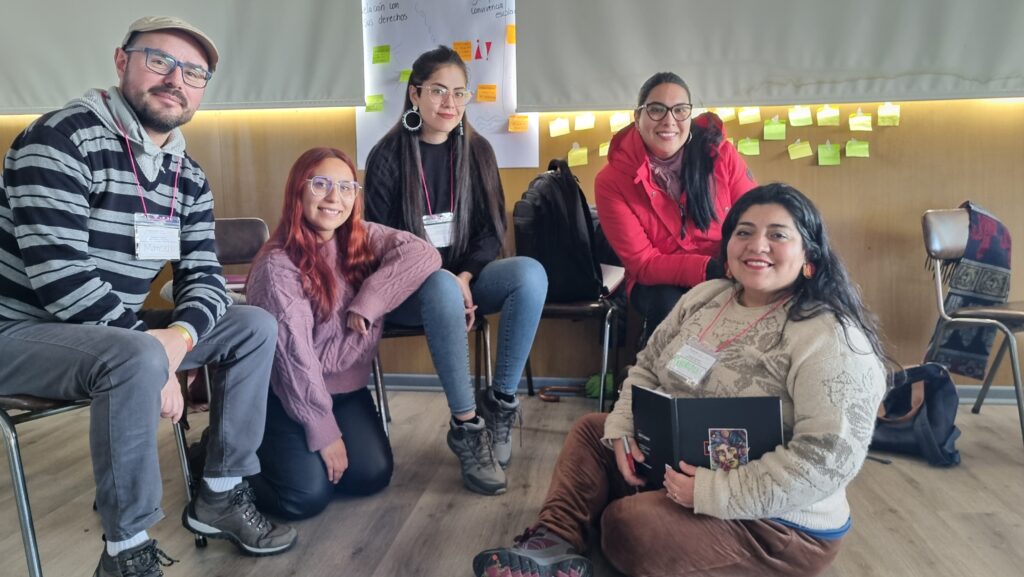 An inspiring workshop for facilitators of the “Learning to Live Together” program took place in Santiago, Chile, marking the beginning of a significant initiative to foster a better coexistence in diverse intercultural and interreligious contexts through ethics education. From July 31 to August 3, 2024, the Methodist Seminary hosted 25 participants, including educators and social workers from Methodist, Catholic and public schools, and leaders from the Scout Movement.
An inspiring workshop for facilitators of the “Learning to Live Together” program took place in Santiago, Chile, marking the beginning of a significant initiative to foster a better coexistence in diverse intercultural and interreligious contexts through ethics education. From July 31 to August 3, 2024, the Methodist Seminary hosted 25 participants, including educators and social workers from Methodist, Catholic and public schools, and leaders from the Scout Movement.
This workshop is the first phase of an intervention project to support each institution in integrating ethics education into their programs. The project includes the planning and implementation stages, as well as a monitoring, evaluation and learning process to ensure effective adoption and impact.
The workshop emphasized the critical role of values-based education in addressing the challenges faced by children and adolescents in Chile. The group engaged in deep reflection on these issues, exploring how education can contribute to creating inclusive and harmonious communities.
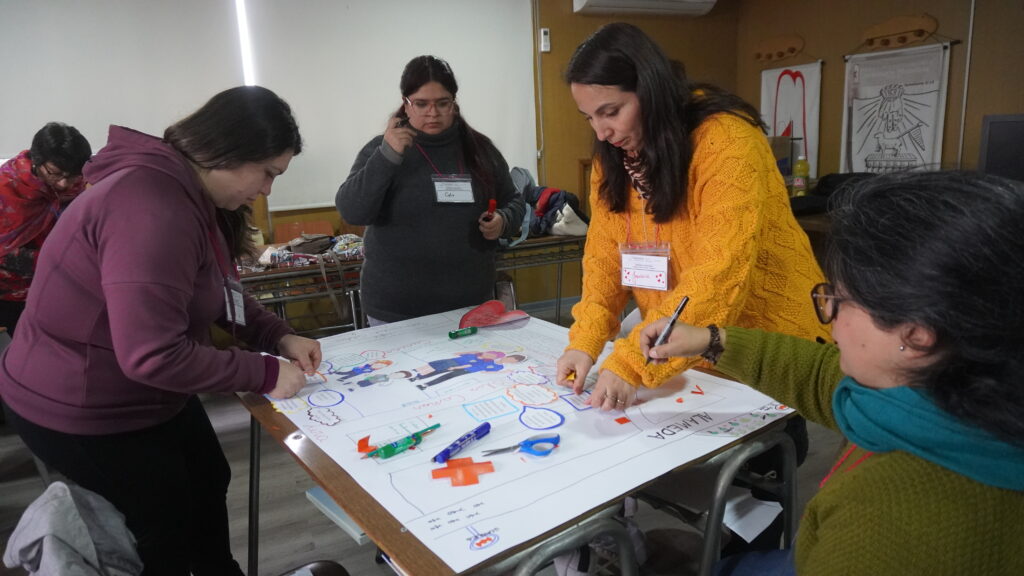
A central theme that emerged was the recognition of schools as safe havens for children. Participants widely agreed that schools provide a nurturing environment where children feel welcomed and supported. However, they also highlighted the stark contrast outside the school setting, where children face numerous difficulties, primarily due to parental absence. One of the participants, Ms. Loreto Jara, Head of School Coexistence at a public school emphasized, “The biggest challenge is loneliness. Children are very much alone. The school is a safe place where they can share, which is why we have so many extracurricular activities for them (…) I dream of seeing empowered children, full of confidence and hope for the future,” she added.
Another significant challenge discussed was education in migratory contexts. Ms. Javiera Fredes, Head of Pastoral Management at a Christian school, shared how 60% of her students are migrants, many of whom stay for only a year or two before migrating again. She highlighted the importance of nurturing values and critical thinking in children, “When you strengthen the ethical dimension, you provide pillars where children can ground themselves, giving them a solid foundation of ethical values to help them make the best decisions,” she stated. At the same time, she addressed the difficulty in providing migrant children with the tools they need to navigate today’s society and the issues they face daily.
The spiritual dimension was a key focus of the discussions. Ms. Tania Alvares, representing the Chilean Guides and Scouts Association, shared insights on how spirituality is woven into the scouting experience: “In Scouts, we strive to connect with nature and, through it, discover God or a higher power.” She highlighted the importance of their commitment to “always improving” and serving others. “This program deeply resonates with us because it honors both individual uniqueness and the values of living in a community.”
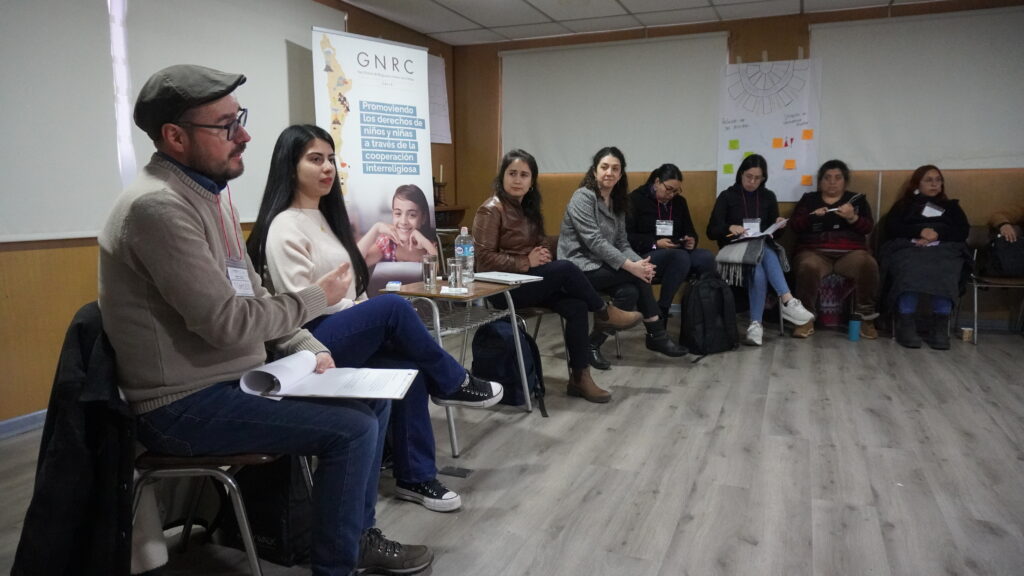
One of the workshop’s highlights was a dialogue with Ms. Cristina Vega, the National Head of School Coexistence from Chile’s Ministry of Education (MINEDUC). She provided a comprehensive analysis of the realities faced by children in the country, highlighting the importance of the Convention on the Rights of the Child. Alongside her, Ms. Consuelo Jara (19), a former member of the Advisory Council of the Office for the Defense of Children’s Rights, shared her powerful personal story. Ms. Jara’s experiences inspired her to found “Derribando Gigantes” (Tearing Down Giants), an organization led by children that focuses on preventing bullying and improving school coexistence. She recounted how, while still a student, she established the organization, underscoring the critical role the educational community plays in empowering children to become positive change agents.
The workshop was filled with enthusiasm, as the participants showcased their passion, eagerness to learn, and motivation to implement the program in their respective institutions. Key discussions revolved around respecting children’s rights and nurturing their spirituality. The dedication and experience of the participants shone through in their commitment to making a difference in their communities.
Participants represented different institutions, including the Methodist School of Santiago, Methodist School Los Andes, Sweet Nursery and Kindergarten, Cristóbal Colón School, Blas Cañas Commercial Institute, San Bernardo Belgium School and the Chilean Guides and Scouts Association.
The workshop was organized by the Global Network of Religions for Children (GNRC), GNRC Chile and Arigatou International – Geneva. Special thanks are extended to the facilitators, Mr. Marco Fabián Laguatasi Correa, Advisor for CELAM (Latin American and Caribbean Episcopal Council) and GNRC Ecuador Coordinator; Mr. Marcelo Neira, Director of Advocacy and Studies at the Archdiocese of Santiago; along with the support of Ms. Maria Jose Ananias, Coordinator of Networks and Programs for Latin America and the Caribbean at GNRC; Mr. Francisco Vila, Head of Programs at Arigatou International – Geneva; and Mr. Oscar Espinoza, Pastor at the Methodist Church of Chile, Chaplain of the Methodist School of Santiago and GNRC Chile Coordinator.
The success of this event is a testament to the collective effort and shared vision of those dedicated to improving the lives of children and creating a more peaceful, inclusive society. Thank you to everyone who made this significant workshop possible.
